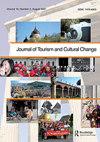海滨酒店选址与环境影响:土地利用困境
IF 2.5
4区 管理学
Q2 HOSPITALITY, LEISURE, SPORT & TOURISM
引用次数: 7
摘要
摘要旅游业最重要的决策之一与景点、设施和酒店的位置有关。这一决定受到游客需求、当地社区需求和利益相关者经济利益的影响。新娱乐度假村和酒店的规划人员和企业家必须考虑到环境影响以及他们对环境的责任。本研究探讨了旅游理论与海滨酒店选址、可持续发展范式与可持续旅游发展之间的关系,以及海滨旅游发展对环境和文化可持续性问题的敏感性所产生的土地利用冲突。本研究的目的是检验和分析海滨酒店选址的旅游与可持续性考虑,并列举一些适合酒店最佳布局的原则,以减少该主题的土地使用冲突。该方法是定性的,包括对参与以色列旅游业发展和环境问题的专家、旅游规划者、企业家、决策者和利益攸关方进行深入采访。这是一项重要的研究,在已有密集开发、竞争和土地利用冲突地区的海滨酒店规划和旅游开发中具有应用价值。本文章由计算机程序翻译,如有差异,请以英文原文为准。
Seaside hotel location and environmental impact: land use dilemmas
ABSTRACT One of the most important decisions to be made in the tourism industry pertains to the location of sites, facilities, and hotels. This decision is influenced by tourist demand, local community needs, and economic benefits to stakeholders. Planners and entrepreneurs of new recreational resorts and hotels must take environmental implications into consideration as well as their responsibility in relation to them. This study addresses the relations between theories of tourism and seaside hotel location, the sustainability paradigm and the development of sustainable tourism, and land use conflicts engendered by the sensitivity of seaside tourism development to environmental and cultural sustainability issues. The aim of the study is to examine and analyze tourism vs. sustainability considerations of seaside hotel location, and to enumerate some of the principles to be considered suitable for optimal hotel placement in order to reduce land use conflicts on the subject. The methodology is qualitative and includes in-depth interviews with experts, tourism planners, entrepreneurs, decision makers and stakeholders involved in tourism development and environmental issues in Israel. This is a significant research with applied value in the planning of seaside hotels and tourism development in areas of pre-existing intensive development, competition, and conflicts over land use.
求助全文
通过发布文献求助,成功后即可免费获取论文全文。
去求助
来源期刊

Journal of Tourism and Cultural Change
HOSPITALITY, LEISURE, SPORT & TOURISM-
CiteScore
5.10
自引率
9.10%
发文量
31
期刊介绍:
Journal of Tourism and Cultural Change ( JTCC ) is a peer-reviewed, transdisciplinary and transnational journal. It focuses on critically examining the relationships, tensions, representations, conflicts and possibilities that exist between tourism/travel and culture/cultures in an increasingly complex global context. JTCC provides a forum for debate against the backdrop of local, regional, national and transnational understandings of identity and difference. Economic restructuring, recognitions of the cultural dimension of biodiversity and sustainable development, contests regarding the positive and negative impact of patterns of tourist behaviour on cultural diversity, and transcultural strivings - all provide an important focus for JTCC . Global capitalism, in its myriad forms engages with multiple ''ways of being'', generating new relationships, re-evaluating existing, and challenging ways of knowing and being. Tourists and the tourism industry continue to find inventive ways to commodify, transform, present/re-present and consume material culture. JTCC seeks to widen and deepen understandings of such changing relationships and stimulate critical debate by: -Adopting a multidisciplinary approach -Encouraging deep and critical approaches to policy and practice -Embracing an inclusive definition of culture -Focusing on the concept, processes and meanings of change -Encouraging trans-national/transcultural perspectives
 求助内容:
求助内容: 应助结果提醒方式:
应助结果提醒方式:


